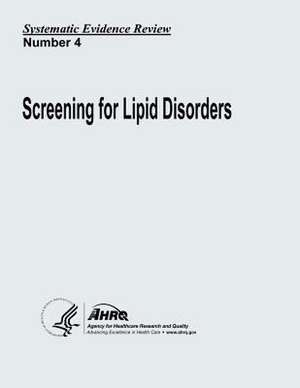Screening for Lipid Disorders
Autor U. S. Department of Heal Human Services, Agency for Healthcare Resea And Qualityen Limba Engleză Paperback
Preț: 137.16 lei
Preț vechi: 144.39 lei
-5% Nou
Puncte Express: 206
Preț estimativ în valută:
26.25€ • 27.47$ • 21.84£
26.25€ • 27.47$ • 21.84£
Carte disponibilă
Livrare economică 10-24 martie
Preluare comenzi: 021 569.72.76
Specificații
ISBN-13: 9781490510590
ISBN-10: 1490510591
Pagini: 126
Dimensiuni: 216 x 279 x 7 mm
Greutate: 0.31 kg
Editura: CREATESPACE
ISBN-10: 1490510591
Pagini: 126
Dimensiuni: 216 x 279 x 7 mm
Greutate: 0.31 kg
Editura: CREATESPACE
